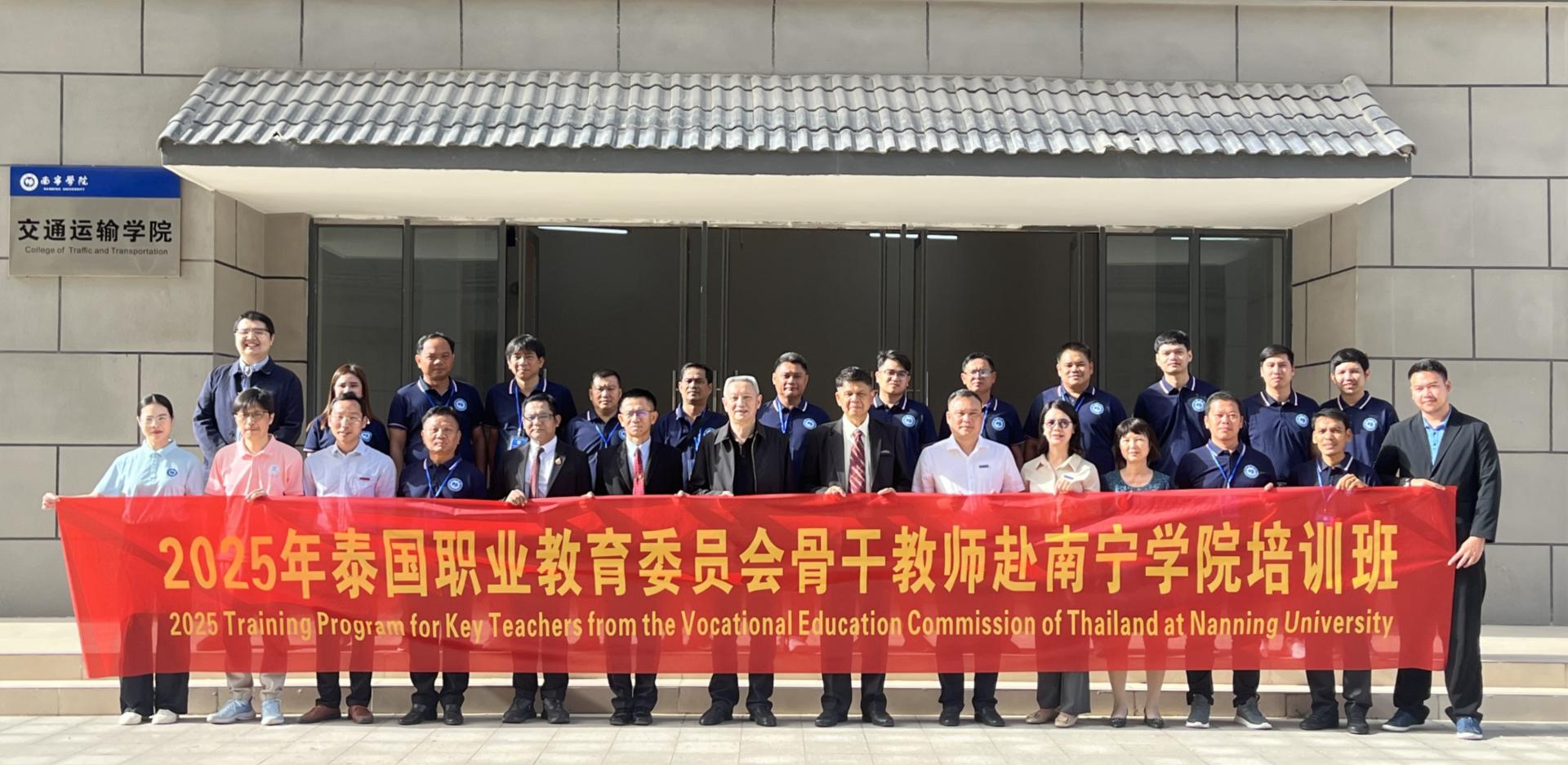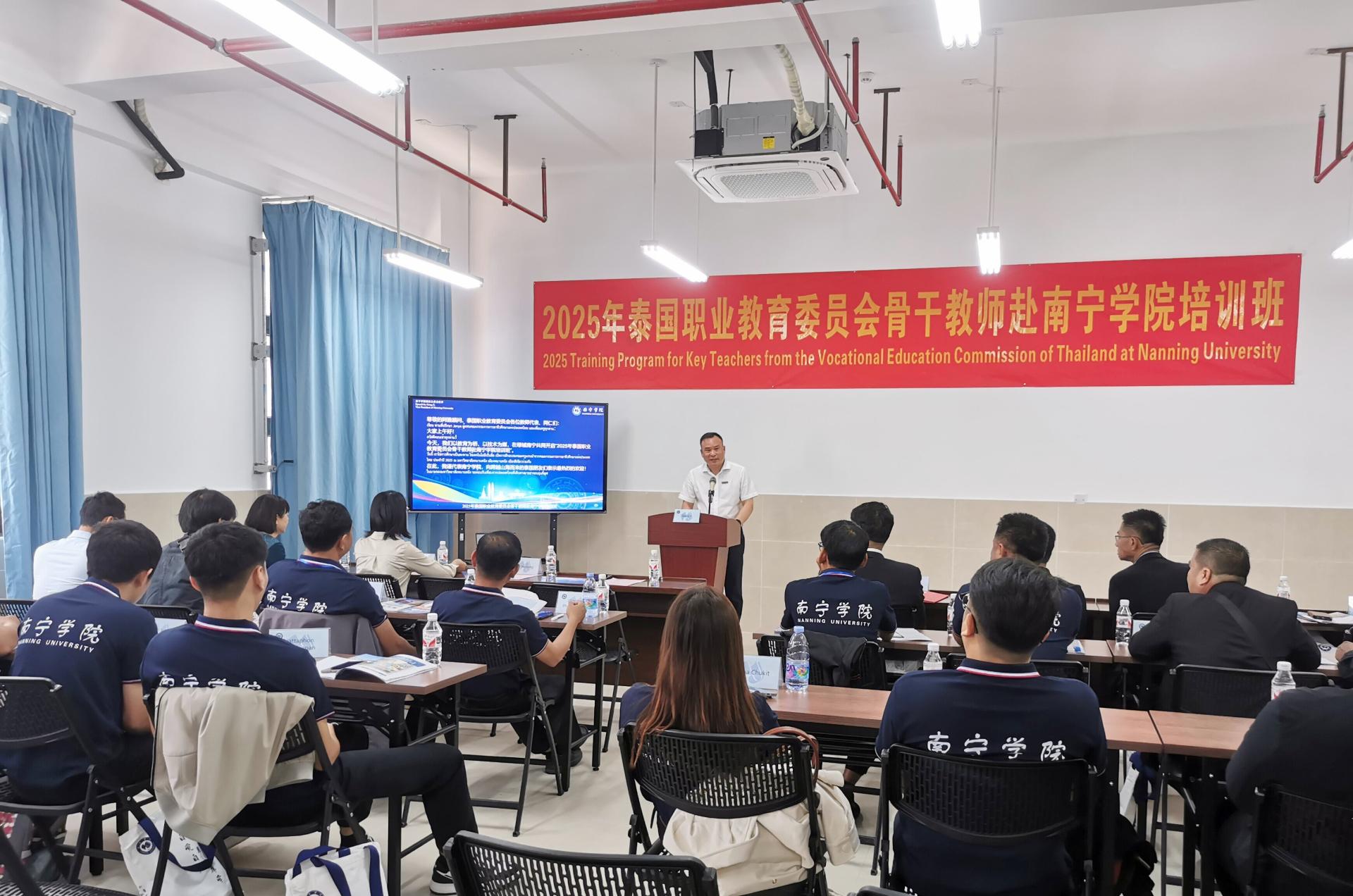On April 14, Nanning University hosted the opening ceremony of the "2025 Training Program for Key Teachers from Thailand’s Vocational Education Commission at Nanning University." Co-organized by Nanning University, the program aims to deepen Sino-Thai vocational education cooperation, particularly in the field of new energy vehicle (NEV) technology. Dr. Gong Ji, Vice President of Nanning University; representatives from Thailand’s Vocational Education Commission; and 16 faculty members from multiple Thai institutions attended the event, marking a new chapter in China-Thailand vocational education collaboration.
The ceremony was moderated by Fan Yi, Dean of Nanning University’s College of Traffic and Transportation. Dean Fan extended a warm welcome to the Thai delegation and guests, including Dr. Qin Fengcai, Director of Nanning University’s Office of Development Planning and Cooperation and Exchange; Prof. Wu Jie, Dean of College of ASEAN Studies; Prof. Wen Xuguang, Director of Guangxi Key Laboratory of International Join for China-ASEAN Comprehensive Transportation; and Mr. Junyar Pabu, Advisor to Thailand’s Banphai Industrial and Community Education College.
Belt and Road Initiative in Action: Nanning University’s Commitment to Vocational Education
In his address, Dr. Gong Ji emphasized the program’s alignment with the Belt and Road Initiative and Nanning University’s educational philosophy. He commended Mr. Junyar Pabu for his decade-long contributions to Sino-Thai vocational education partnerships, stating, "This training transcends technical learning—it is a profound exchange in NEV technology. We aim to empower Thailand’s NEV sector through two weeks of knowledge sharing." Dr. Gong also invited participants to experience Chinese culture and the ecological beauty of Nanning University’s Bugu Lake campus during their stay.
Mr. Junyar Pabu, representing Thailand’s Vocational Education Commission, reflected on the 12-year partnership between Nanning University and Thai institutions, which began with high-speed rail technology training in 2012. He highlighted achievements in curriculum development, faculty exchanges, and joint research, particularly in railway engineering. "This NEV-focused program expands our collaboration," he noted. "We aspire to introduce China’s advanced NEV expertise to Thailand, benefiting our educators and students and invigorating Thai vocational education."
Theoretical and Practical Learning: A Comprehensive Curriculum
Liang Wei, Deputy Director of Nanning University’s NEV Research Office and program coordinator, outlined the curriculum, which integrates theoretical instruction, hands-on training, and industrial visits. The program offers a holistic learning experience centered on NEV technologies.
Cultural Exchange and Technological Synergy: Driving Green Mobility
The training program strengthens Nanning University’s educational ties with ASEAN nations and serves as a vital platform for Sino-Thai NEV technology exchanges. Over the next two weeks, Thai educators will explore technological frontiers through a blend of theory and practice, advancing sustainable transportation solutions. Nanning University remains committed to global openness and collaboration, contributing Chinese insights to global vocational education development.

